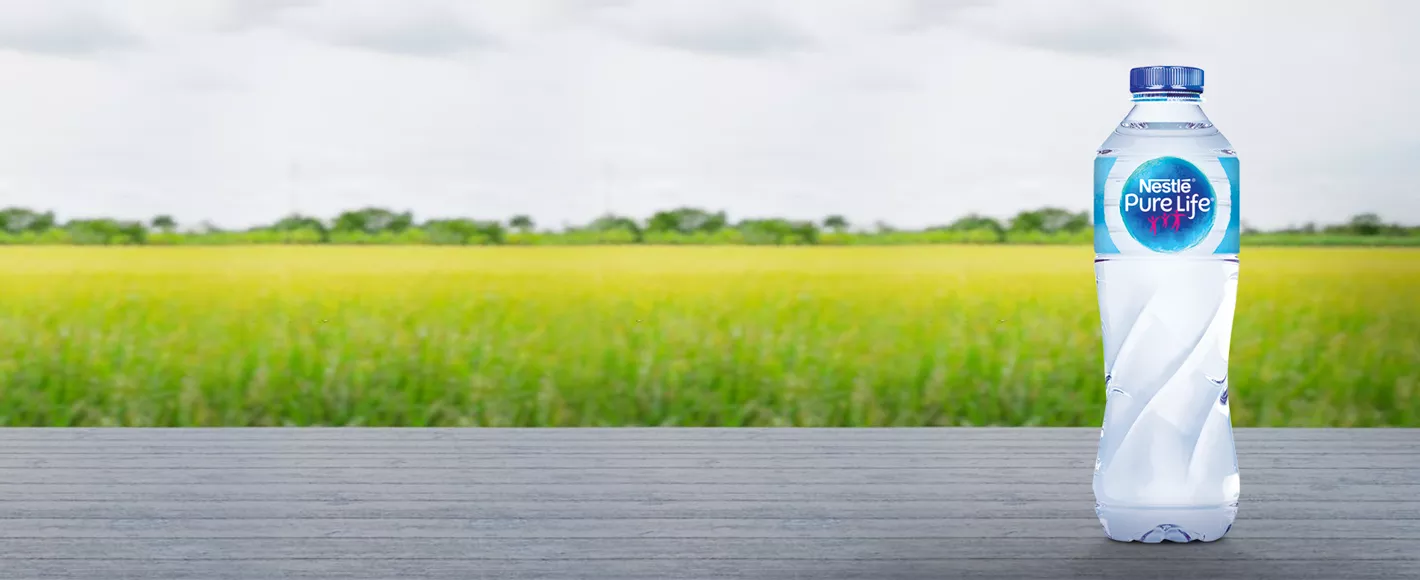
Water is precious. That is why we consider the principles of sustainability when we source, produce and deliver NESTLÉ PURE LIFE bottled drinking water. When we take the time to make choices that include environmental and social aspects, we’re able to meet the needs of the present without compromising the ability of future generations to meet their needs.
Water stewardship: Looking for ways to save water internally and externally

Drip Irrigation Technique to save water at farm level
We’re always looking for new and innovative technologies and ideas that can help us make the best use of water throughout our processes. Agriculture consumes 90% of total fresh water. We recently facilitated our farmers by introducing drip irrigation method, which significantly reduces water consumption in irrigation with expected savings of over 150 million liters annually.

AWS Certification for responsible use of water
We are AWS Certified for our SKP factory under the "Alliance for Water Stewardship (AWS)" International Standard. Our Sheikhupura site was the first factory across the Nestlé World to get this certification which endorses Nestlé's commitment to use water responsibly. This is an international certification that sets rigorous criteria for managing water in ways that are environmentally, socially and economically beneficial.
Nestlé also provides six clean & safe drinking water facilities to communities across Pakistan.

Elimination of Municipal water supply
In 2016, our Port Qasim site also installed recovery RO to reuse rejected water from main stream RO. This has eliminated the need for Muncipal water supply.

Reduction in Packaging
All our Retail bottles are recyclable by design. In addition to this, we are committed to reducing our virgin plastic usage by 30% by 2025.

Investing in the future
We are on a journey to ensure recyclable materials are collected and recycled. The Retail bottle is a valuable resource that can be reused over and over. As per a study conducted by the WWF, There are more than 50 industries working on Retail plastic recycling in Pakistan. Since they are consuming used plastic as their raw material so there is complete infrastructure available for its collection & handling through the informal sector.
That is the reason we don’t see any Retail plastic waste at garbage dumping points. All this is being managed with least involvement from the government.There are quite a number of products which are being made from recycled plastic like green plastic furniture made from recycled polyethylene which is an alternative for wood. It's also used in carpet lining industry, garment industry, textile industry, bag making and export of Retail grinding flakes.
